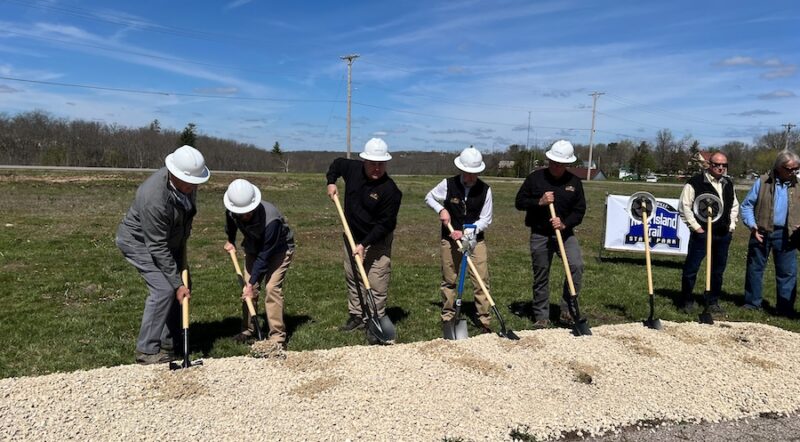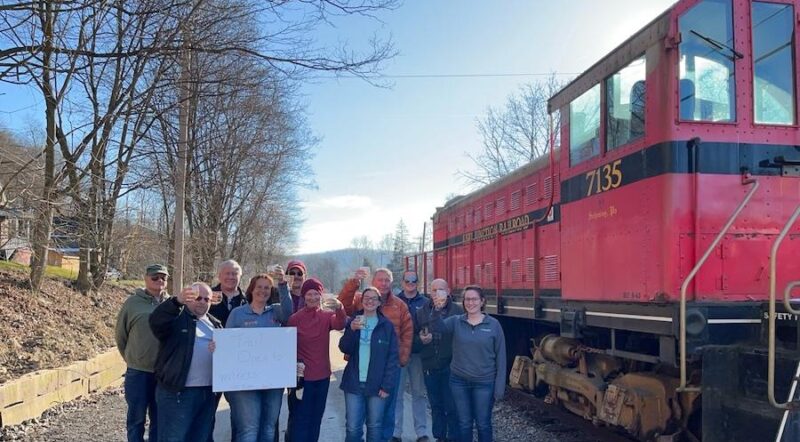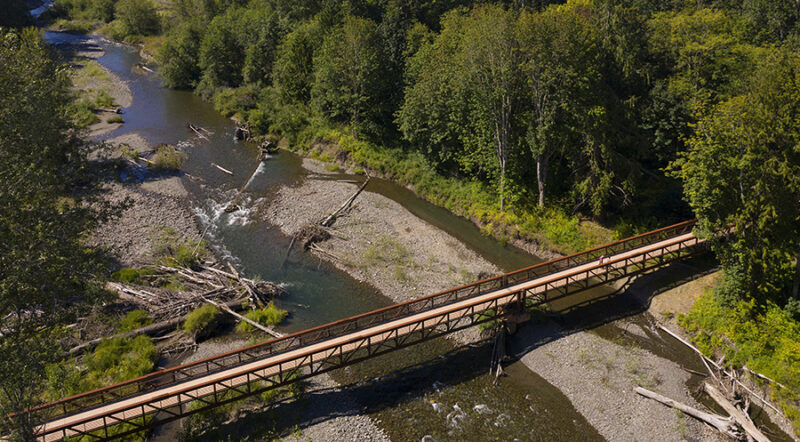These 2023 Trail Grants Are Activating Trails and Trail Networks Across the US
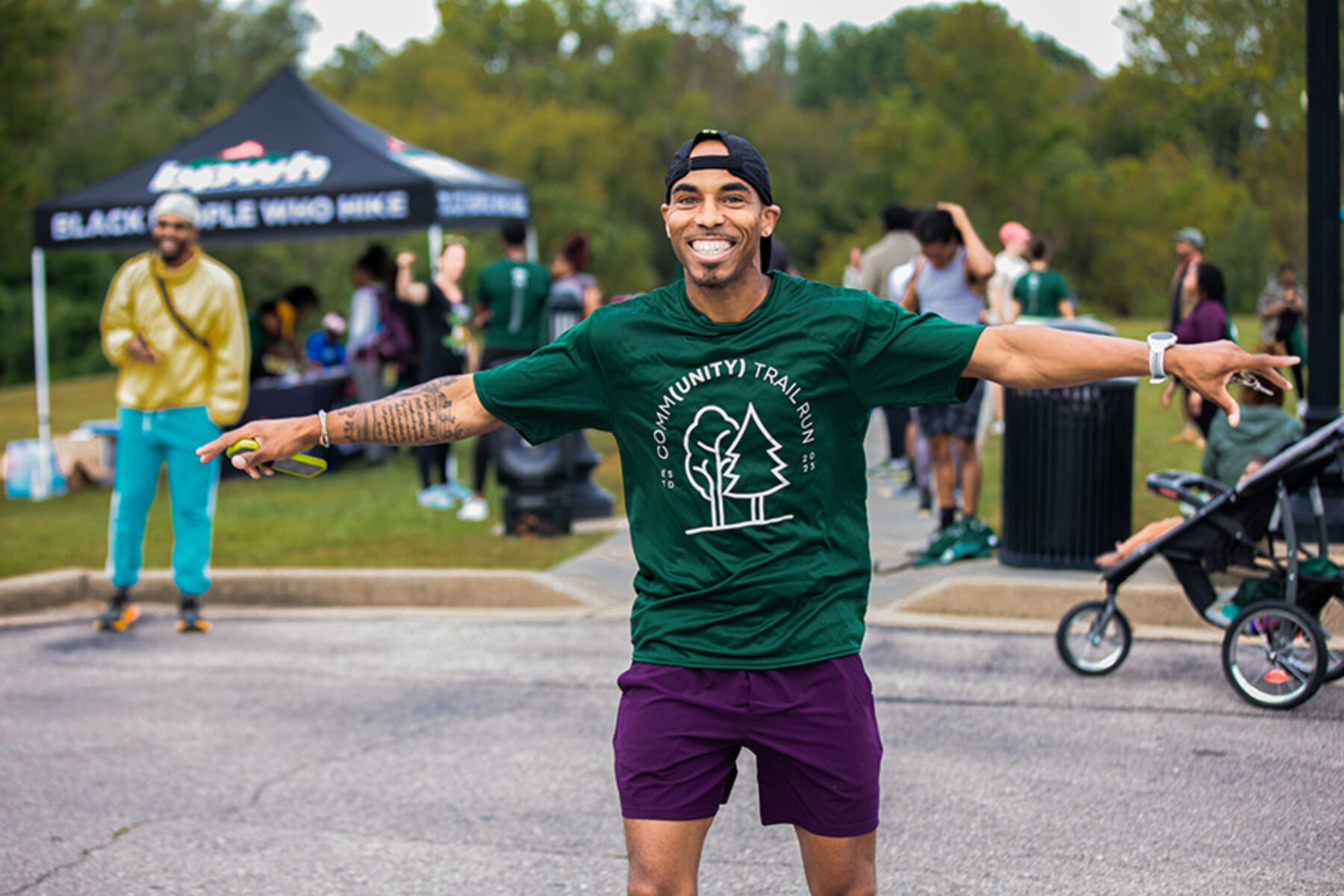
In 2023, Rails-to-Trails Conservancy Awarded 30 Trail Grants Totaling $348,000 to Support Equitable Trail Development and Community Programs
Debbie Njai still remembers the first time she went hiking. It was August 2019, and she instantly fell in love. She remembers how she felt her stress and anxiety simply roll off her back. Just a month later, in September, she cofounded Black People Who Hike (BPWH).
When Njai started hiking weekly, random people on Instagram started asking her if they could join her hikes. That’s when she decided to start hosting actual events.
“I remember it was February of 2020, so before COVID and this was dead of winter; it’s really cold in St. Louis, and we had a self-care hike called Boo’d Up With Nature,” said Njai. “We had almost 40 Black people out on the trail in the dead of winter, and that’s when I realized ‘Wow, this is huge. This is bigger than me.’”
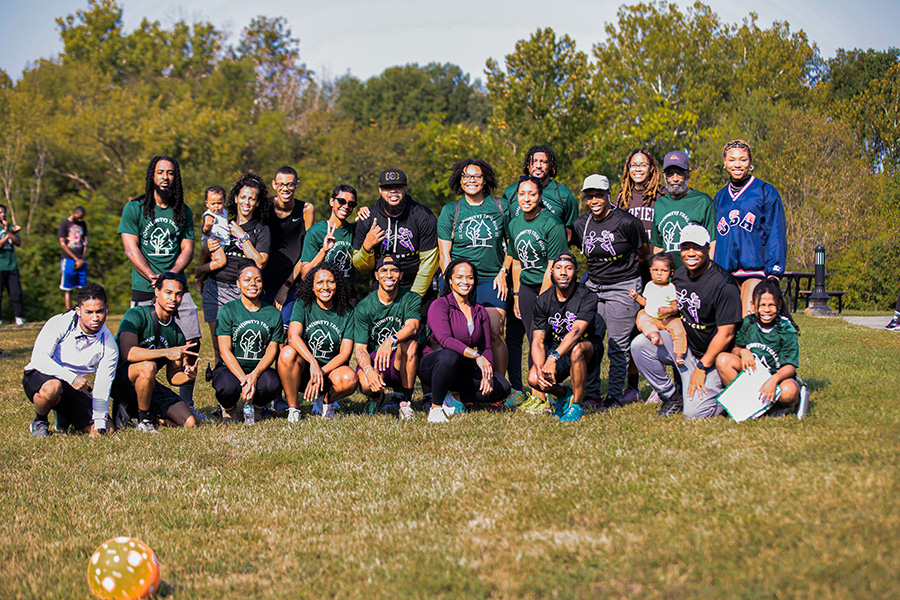
Since then, BPWH has gotten thousands of Black people across the country outside and onto trails, bridging the well-known and well-documented gap in racial inequity seen in outdoor recreation—from community events in St. Louis to their National Park Tours, which take members out on multiple overnight hikes in national parks across the country.
In 2003, BPWH will continue to expand their programming with support from Rails-to-Trails Conservancy (RTC), which awarded Njai’s organization a $5,000 grant that will go toward marketing their community events, and paying for things like food and water, which they often provide for participants at their hikes. This grassroots impact is one of the things RTC seeks to achieve through the national Trail Grants program, which launched in 2008, and since then has awarded an estimated 380 grants totaling nearly $3 million to transformative projects.
Of the 135 applicants in 2023, RTC was able to award a collective $348,000 to 30 organizations and programs, with a focus on the acceleration of trail network development and activation.
“The total amount our applicants applied for was close to $3 million—and for me that speaks to the need for this level of investment,” said Mary Ellen Koontz, RTC’s TrailNation™ Collaborative Lead. “These aren’t huge sums of money, but these grants really fill in the cracks of investment to do really critical work, whether its signage or community activation or hiring a grant writer.”
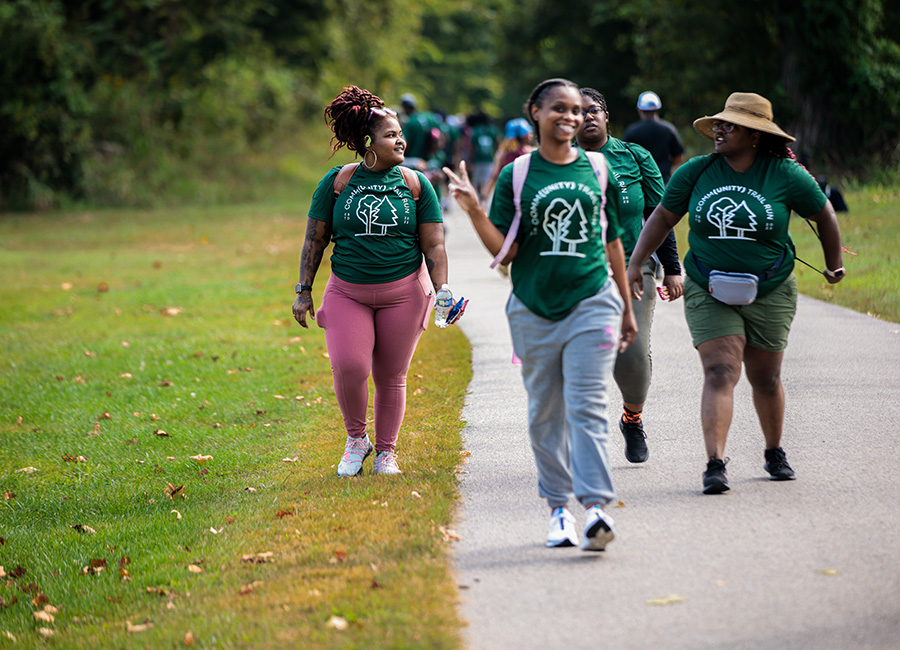
This year, Koontz said RTC prioritized programs that focused on “supporting the foundation of equitable trail development.” She said they looked for communities where the “need is high and it’s evident, as well as organizations that have really dedicated themselves to building more equitable systems … for people to just go outside and get outdoors.”
Still, narrowing down 135 applicants to just 30 awardees was a “tough process.”
Scope and project size among the awardees vary. There are programs like BPWH, Latino Outdoors and HBCUs Outside, which activate spaces to encourage the presence of underrepresented people in the hiking world. And then there are projects like the Borinquen Trail and the Anchorage Park Foundation trail expansions. The former, the development of an island-wide rail-trail that hugs Puerto Rico’s circular coast and is dotted with historical light houses and sugar cane plants that point to the country’s time under Spanish colonial rule. The latter, a massive (and wholesome) trail shaped like a moose in Alaska.
Known as the Moose Loop, the project received a $15,000 grant to add wayfinding and signage to a lesser-used section of the trail. The loop connects four trails in Anchorage: the Lanie Fleischer Chester Creek Trail, the Tony Knowles Coastal Trail, the Campbell Creek Trail and the Ship Creek Trail. The loop itself is modeled after a Ken Marsh photograph of a moose from the side.
“The Moose Loop is a very exciting project,” said Koontz. “This is a system that can get me where I want to go; it can get me to a hospital, it can get me to school, it can get wherever I need to be all year round, which is a special challenge in Alaska.”
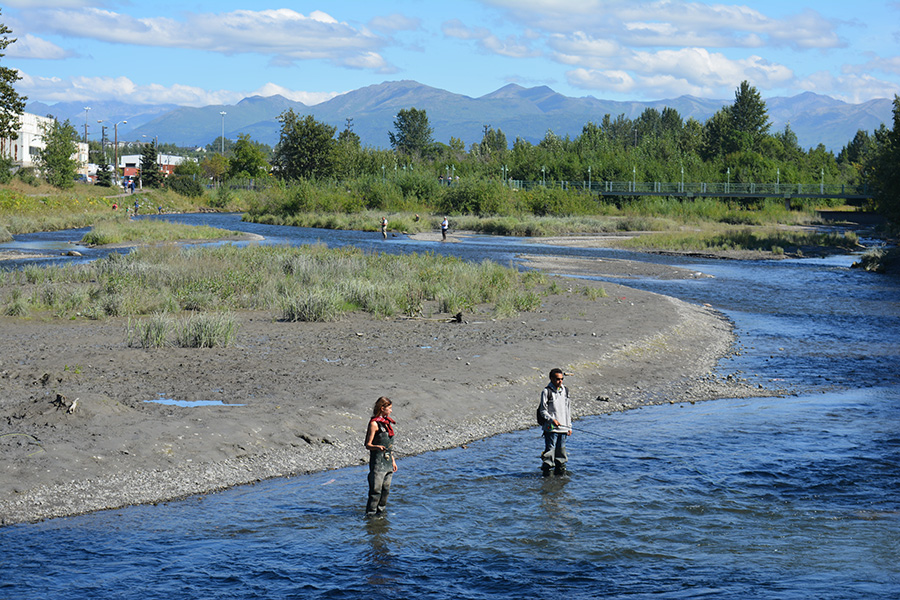
The 31-mile paved loop has more than 30 parks along its route, as well as old salmon fishing camps, year-round beach views and wildlife watching. The trail is also an urban pathway for the city of Anchorage.
“We’re using the Moose Loop [to ask], ‘Ok we’ve got this … our existing active transportation network. How can we expand it? How can we connect to it, and how can people use this as a way to understand what we have and grow our active transportation connections?’” explained Diana Rhoades, the Anchorage Park Foundation’s community engagement director and the lead on the grant.
The wayfinding and signage project will help make the trail more visible for students and hospital workers around the UMED District, which includes two major universities—the University of Alaska Anchorage and Alaska Pacific University—and the Providence Alaska Medical Center.
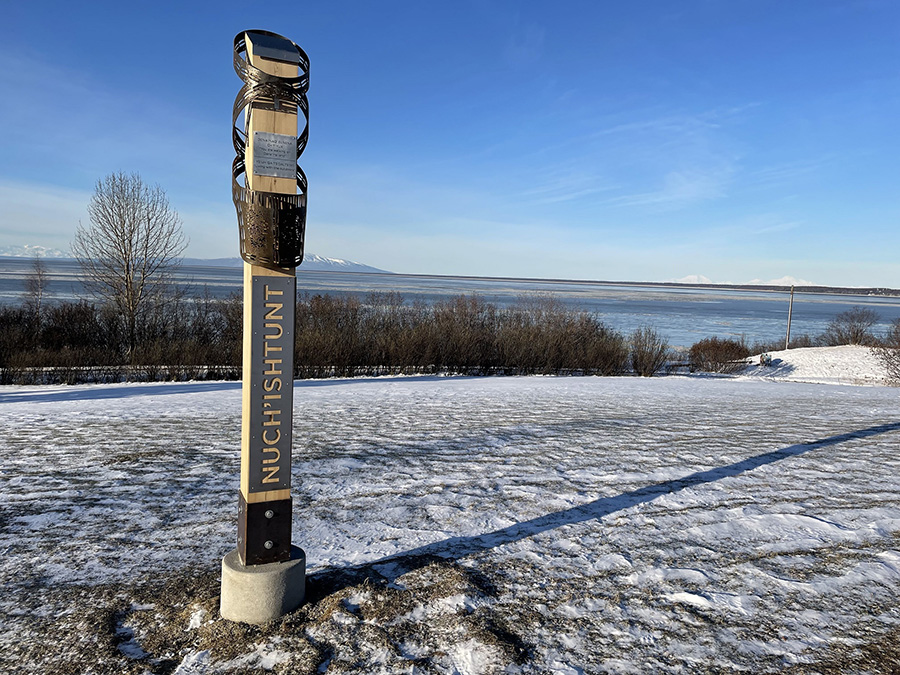
“We looked at the map and have been working with our partners at both universities and Providence hospital to try to find a route that already existed, but people have a difficult time finding it. [Through this project, we’ll] sign it and get more people to use it,” said Kerry Lynch, who put together a map with the possible options for connecting routes.
Koontz said there’s no one way for communities to go about developing and activating their trails, but the RTC Trail Grants program trusts the awardees to know what they need.
“They’re the experts,” affirmed Koontz.
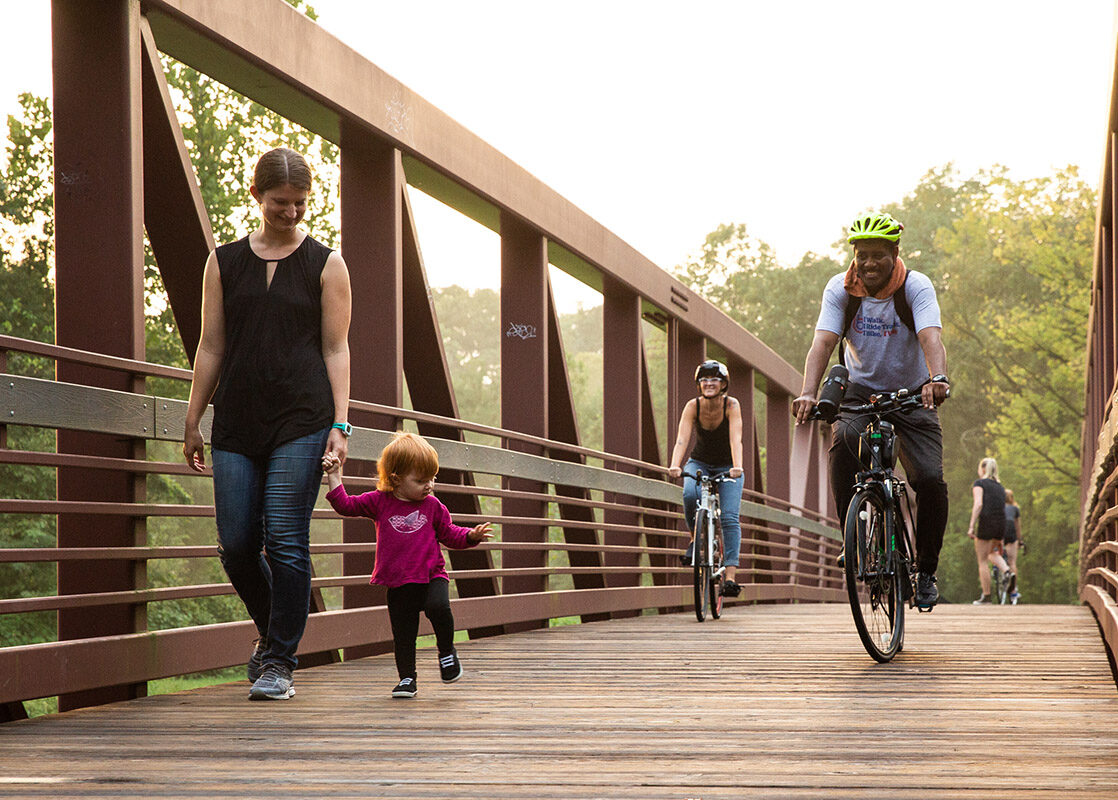
Donate
Everyone deserves access to safe ways to walk, bike, and be active outdoors.

